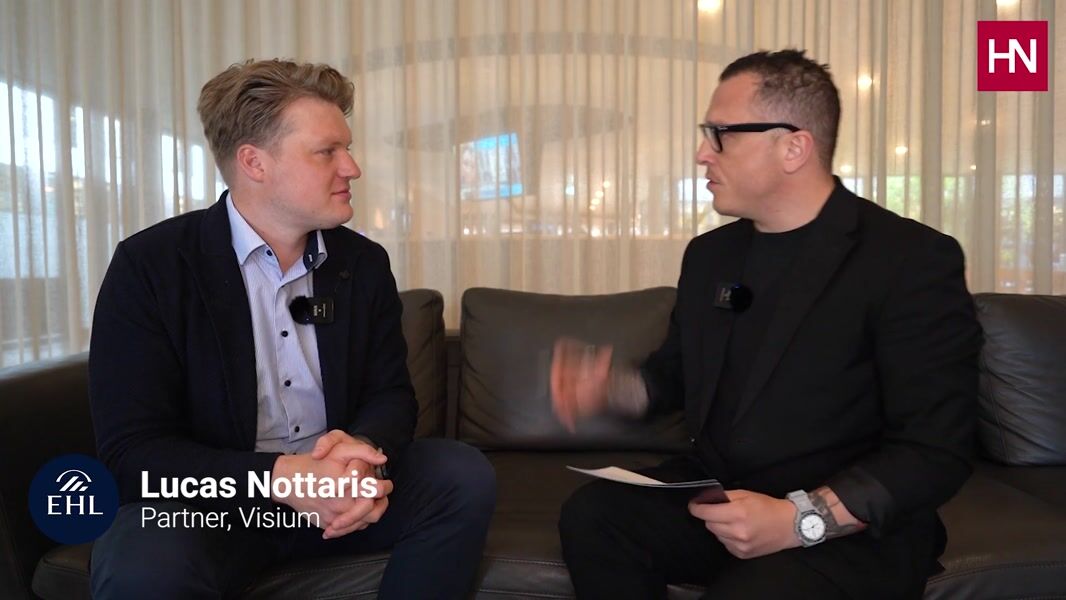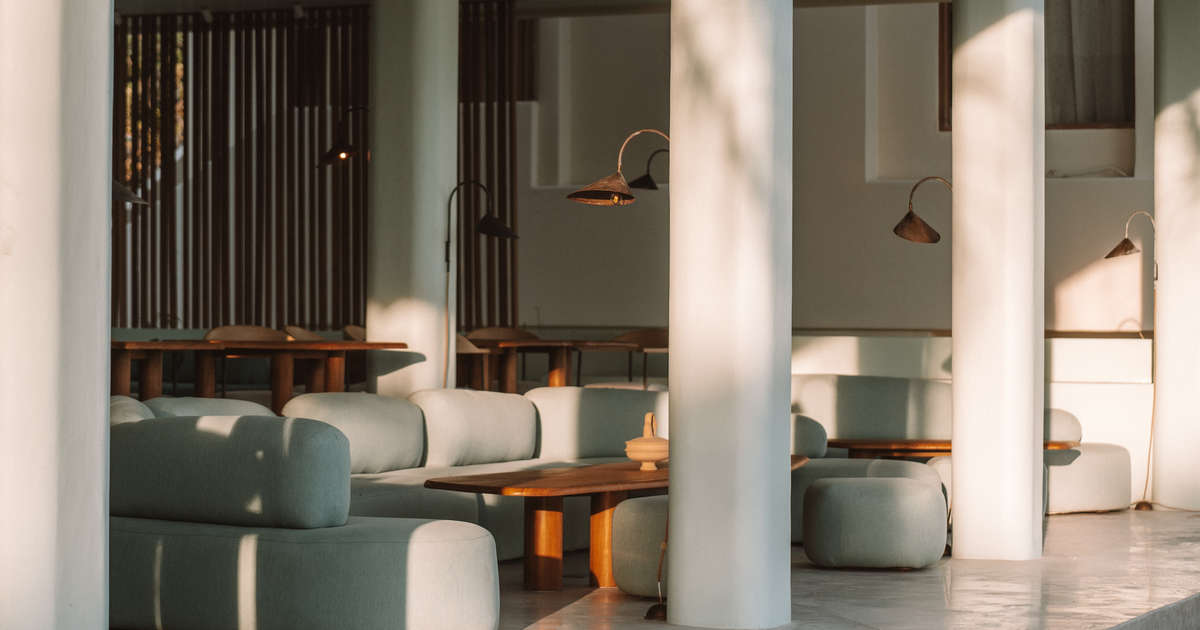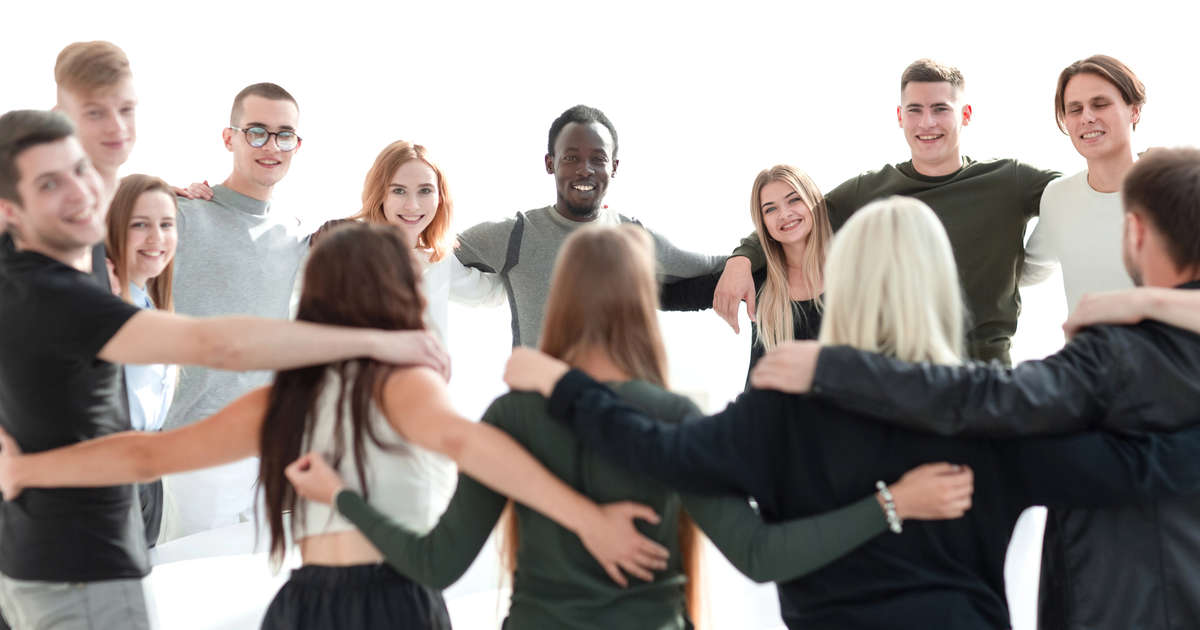
During the EHL Open Innovation Summit in Lausanne, we caught up with Lucas Nottaris, Partner at Visium, to discuss how agentic systems are reshaping the guest experience, why personalization must be guided by consent and human judgment, and how the hospitality industry can build trust by giving guests more control over their data.
Which technology or innovation do you think will reshape the most our industry over the next 5 to 10 years?
Lucas believes that agentic systems will have the most significant impact in the near future. These are systems that consume and absorb information and then take their own action based on that data. They can independently access other systems and complete entire workflows—not just point solutions anymore. For example, in some golf resorts in the US, customer support has been replaced with voice agents that book tee times based on user preferences and weather conditions. This is one of the first times we can truly transform an entire workflow end to end, and that’s due to agentic systems.
Do you think it is possible in our industry—with tech silos and a very long booking journey—to actually hyper personalize or even personalize?
Lucas says personalization is possible, and it is needed. He thinks the hospitality industry may feel under-personalized because we have always valued human touch. As long as personalization enhances human connectivity and does not replace it, it can elevate guest experience. The key is consent and context. Personalization must make a guest feel heard and known, but not watched. It has to avoid artificial empathy. Systems can help by providing the right information—like coffee preferences—but a person still needs to guardrail that use and apply it appropriately, depending on the guest.
What is your take on the fine line between personalization and being too intrusive, almost creepy?
Lucas shares an example of a hotel that left a condolence letter in a guest’s suite after hearing their dog had passed away. For some, that may be appreciated. For others, it may be too much. Whether personalization is intrusive depends on the individual. Lucas believes the experience must be guided by humans, because only humans understand consent and context. We cannot generalize personalization for everyone. Older generations might not like it, younger generations might want more of it. Systems can give the input, but a person has to make the decision: do we use this information, or not?
Do you think in a few years we could see a policy for personalization—where a guest sets their preferences at the beginning of the booking journey?
Lucas says he hopes so. He emphasizes transparency and openness. What he dislikes is when someone interacts with him using tools or information they do not disclose. If a store is using a system to personalize his experience, he wants to know. Maybe having a policy like accepting cookies online is the way forward, where guests can choose a fully personalized experience or one that is totally neutral. This would give people the power to decide how much personalization they want—and help the industry build trust.
About the EHL Open Innovation Summit 2025
This interview was recorded during the EHL Open Innovation Summit in Lausanne, where Hospitality Net joined as official media partner.
The event brought together a global mix of thinkers and doers to explore the future of hospitality, food, and travel through open innovation. What made it special was the mix of ideas, formats, and people. It was not only about tech or talks. It was also about people showing up, working together, and sharing energy in real time.
Key Figures
- 385 participants
- 48 speakers and contributors from more than 20 countries
- 7 innovation challenges collectively addressed
- 45 sessions
- 25 student volunteers
- 15 F&B startups letting us taste the future
- 1.5 days of connection, learning, and co-creation
Key Insights from the Summit
- A new benchmark for hospitality innovation
The summit set a new standard by weaving together AI, sustainability, regeneration, and human connection – showing that innovation in hospitality, luxury and food must be holistic, human-centric, and purpose-driven. Participants repeatedly highlighted the need to go beyond efficiency and into meaningful transformation. - From knowledge exchange to real-time co-creation
More than just a series of talks, the summit was an activation space – a living lab where diverse minds worked together on pressing challenges, from regenerative tourism to circular luxury to AI in guest experience. It was a showcase of collective intelligence in motion. - Collaboration as the engine of systems change
Open Innovation came alive not as a buzzword, but as a relational practice. From panelists to students, from global explorers to startup founders, everyone was invited to co-create, connect dots, and contribute. Participants repeatedly said they experienced true collaboration across boundaries, industry, sector, age, and background. - The power of presence: hearts, minds, and hands
Whether walking in the forest, painting together, or debating future systems, attendees embraced the idea that innovation isn’t only about tech and metrics – it’s also about embodied experience, slowing down to speed up, and nurturing a regenerative mindset. - The future is “AND” – not “either/or”
A recurring takeaway: we must stop choosing between extremes. The future is tech AND human, healthy AND delicious, profitable AND impactful. This “integration mindset” is already informing how leaders, startups, and educators present are reshaping their strategies. - The beginning of a long-term movement
Attendees described the summit as the start of something much bigger – a platform for experimentation, learning, and alliance-building. The EHL Innovation Hub was recognized not only as an academic powerhouse, but as a true catalyst for regenerative innovation across hospitality, service, food, and travel.

